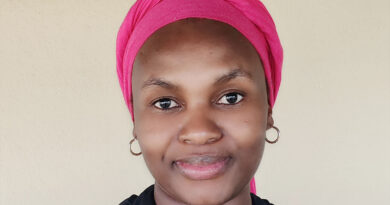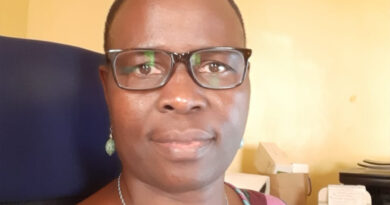Getting Young South Africans Hooked on Reading by Mignon Hardie
While the benefits of reading are clear, there are many barriers to South Africa developing a culture of reading. As research from the National Book Development Council shows, a mere 14% of adults claim to be active readers and less than 5% of parents read to their children. The reasons for this lack of a reading culture include: the high cost of books, which makes them unaffordable to the vast majority of South Africans, limited access to books, particularly in rural areas and under-resourced communities (only 8% of schools have a functional library); low levels of adult literacy – especially in our poorest communities; and lack of subject relevance –many teens complain that books are not relevant to their lives. The FunDza Literacy Trust was established to develop a culture of reading amongst South African youth within this difficult environment. It does this through its three programmes:
Growing Communities of Readers
Cell phone penetration in South Africa is extensive, and cell phones have become part of teen culture in all demographics. This makes the cell phone an ideal vehicle for providing reading opportunities. FunDza has a mobi network (mobi site and Mxit portal) through which it hosts a growing “Mini library” of South African YA fiction. FunDza commissions stories from established authors such as Jenny Robson, Lauri Kubuitsile, Michelle Faure, Agnes Kimberley, Tracey Farren, Sarah Lotz, Cynthia Jele and others. In addition, FunDza is working with young emerging writers, such as Sonwabiso Ngcowa and Cebisa Zono, to showcase their talent and their stories.
Each Friday a new serialised short story is launched, with a fresh chapter featured each day – the modern equivalent of Dickens serialised ‘penny dreadfuls’ that keep readers coming back for more. Once serialised, the stories are archived, adding to the growing list of available reads. Currently there are more than 50 short stories. In addition, there is a range of other material available on the site: full-length books (both fiction and non-fiction) as well as interesting articles and interviews. FunDza’s mobi network reaches more than 350,000 readers nation-wide. Responses show that it is fulfilling a need for young people to connect with reading content. The feedback also illustrates the power of stories– with recognisable characters, places and situations– to allow young readers to reflect on their own lives.
FunDza is interested in the potential fiction holds for change and personal development. As such it is also working in conjunction with other organisations to write stories that highlight –in a non-preachy or judgmental way – some of the issues many young people face. For instance, in association with the Perinatal Mental Health Project (PMHP), it wrote a short story that focused on a young girl who fall pregnant while still at school. PMHP provided helpful information and advice to accompany the story.
Developing Young Writers
FunDza encourages young readers to become active participants in a literate culture by developing their own writing. The mobi network provides not only a space for professional authors but also an opportunity for young aspiring writers to publish their work. Readers can email FunDza their own poetry, prose or plays for possible selection to the “FunDza Fanz” section of the mobi network.
Some of FunDza’s faithful writers have submitted 8,000+ word stories – sent paragraph by paragraph by email having been typed on their cell phones. Young writers can also send in their photos and short biographies so that they are recognised as participants and contributors to the site and are writers in their own right! So far FunDza has published in excess of 200 individual pieces of work written by more than 100 young aspiring writers. In addition, FunDza hosts Write4Life Creative Writing workshops to help young people improve their work. The writing produced here is also featured on the mobi network, where it can be read and enjoyed.
Popularising reading
In this third programme, FunDza distributes high-interest teen novels to registered beneficiary organisations (schools, literacy organisations, reading groups, etc) that have applied to be part of the programme. The beneficiary groups are provided with ‘starter packs’ of various titles of teen fiction selected by FunDza. In return, the organisation commits to in-depth monitoring of the usage of the books and readers responses to them. In this way, FunDza develops ongoing relationships with various institutions nationwide. Currently, most of the titles selected for the programme are published by Cover2Cover Books. The responses to these books have been overwhelmingly positive (see page 75 for descriptions and school responses). Teachers are reporting that for the first time their learners are eager to read. Cover2Cover Books carry adverts promoting FunDza’s mobi network, thereby connecting the readers of the books to FunDza’s other programmes through which they can read more extensively and showcase their own works.




